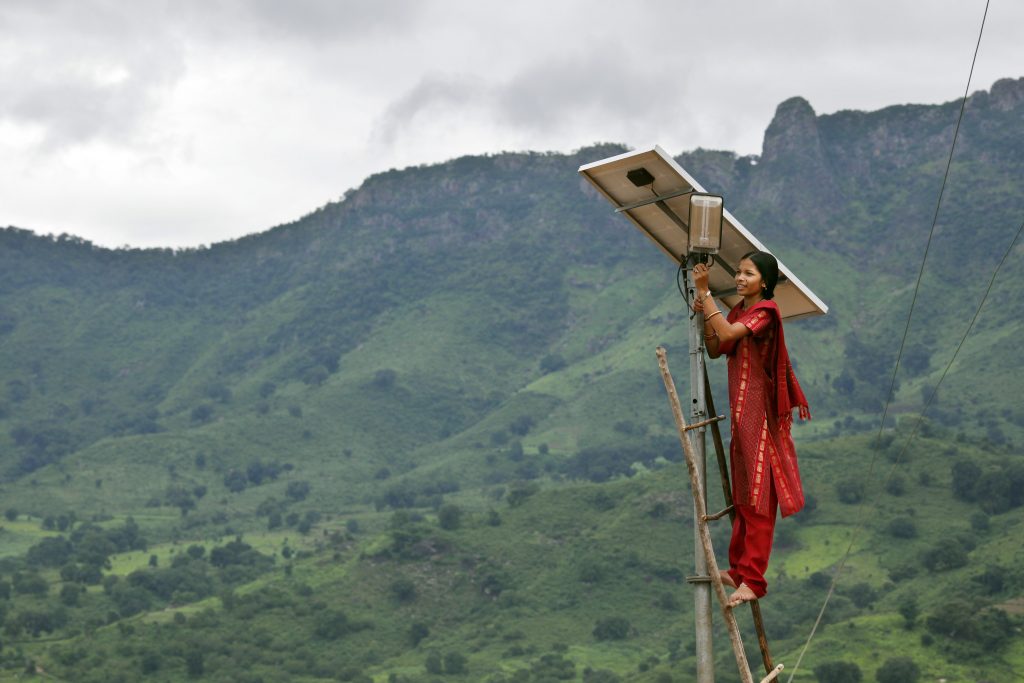Written by: Ameil Harikishun, Policy Officer at Global Resilience Partnership
In the build-up to COP27, there will be a series of Regional Resilience Hubs (Regional Hubs) to compliment the main Hub at COP and ensure the programme reflects perspectives and priorities from a diverse group of communities around the world.
The Resilience Hub brings together global representatives from civil society, the private sector, academia and government to collaborate and scale up action towards a shared goal of making communities and ecosystems around the world safer, healthier and more just. Through the Resilience Hub and the Regional Hubs, we aim to increase the level of ambition and finance given to building resilience, particularly for groups on the frontlines of the climate crisis. We hope to place locally informed, equitable solutions centre stage in the run up to and during COP.
Regional Resilience Hubs
The Regional Resilience Hubs play a crucial role of ensuring the voices and perspectives of traditionally under-represented communities are amplified and heard. They play a central role in illuminating and communicating regional priorities, actions, solutions and challenges on the global stage at COP27.
We are pleased to announce the launch of Regional Hubs for the following regions, and the dedicated and inspiring organisations that are leading them:
- Africa – led by the Climate Development Knowledge Network (CDKN), hosted by SouthSouthNorth
- South Asia – led by the International Centre for Climate Change and Development (ICCCAD)
- Latin America and the Caribbean – led by AVINA
- South East Asia – Awaiting confirmation of lead
- The Pacific – Awaiting confirmation of lead
A primary component of each of the respective Regional Hubs is the development and delivery of a programme of virtual sessions and engagements on regional priority topics. A particular emphasis is placed on engaging voices from frontline communities and lesser heard/under-represented constituencies, ensuring that their voices are amplified through the COP27 Resilience Hub. Most of the activities will take place in September 2022 in order to allow for meaningful and tangible integration into the COP27 Resilience Hub discourse. The activities will include virtual online sessions such as facilitated discussions, roundtables, and panels, with a drive for innovative formats that enable engagement and elicit valuable insights across the regions.
Engagement opportunities
Are you a grassroots- or community-level organisation, or perhaps working on an initiative or programme on adaptation and resilience in one of the above regions? There are several opportunities for you to engage across the respective Regional Hubs on the path to COP27. Three of the Regional Hubs have identified priority areas and are currently securing partners to deliver the activities set to take place in September.
Africa Regional Hub
The Climate Development Knowledge Network (CDKN) currently has an open call for session proposals, to be held in the week of the 19th of September. More information can be found in the announcement here. Priority areas include finance and investment, food and agriculture, resilient infrastructure, water and natural ecosystems, and cities and urbanisation. Session proposals should emphasise how they will engage and amplify voices from frontline communities and lesser-heard and under-represented constituencies, including Indigenous communities, young people and women.
Latin America and the Caribbean Regional Hub
AVINA has identified several priority areas for engagement and virtual sessions; including family agriculture and rurality, climate finance, ecosystem resilience and Indigenous peoples, water resources and resilience, amongst others. Sessions are intended to take place in the second half of September and you are invited to reach out to find out more on how to get involved in the planned sessions across the priority areas.
South Asia Regional Hub
The South Asia Regional Hub has chosen to focus on specific geographical constituencies and local champions to promote Locally Led Adaptation. ICCCAD believes that by placing specific constituencies at the centre of these discussions gives a deeper, more nuanced and rounded understanding of specific local adaptation strategies and vulnerabilities based on specific geographies. The geographies/ constituencies that are being explored include fish workers /coastal communities, women farmers network, mountain communities, mangrove communities, climate migrant communities, urban poor communities, waste picker network, home-based workers. Additional constituencies are welcome, and you are welcome to apply to host an event at the South Asia Regional Hub here.
Please reach out to Ameil Harikishun (aharikishun@globalresiliencepartnership.org), the Regional Hubs coordinator, with inquiries on how to get involved in a specific Regional Hub. Your voice is valuable in ensuring that we deliver an inclusive, diverse and inspiring COP27 Resilience Hub.
The featured image shows a barefoot solar engineer in the solar powered village of Tinginapu, in the Eastern Ghats of Orissa. Photo by Abbie Trayler-Smith / Panos Pictures / DFID

